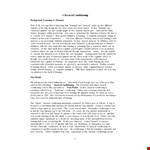Discover the power of classical response and conditioning with our comprehensive guide. Classical conditioning, often associated with the famous experiments of Ivan Pavlov, is a fundamental concept in psychology that explores how associations are formed.
Understanding classical conditioning is essential for anyone studying psychology or interested in behavior. By examining classical conditioning examples, such as Pavlov's dogs, we can gain insight into how stimuli elicit responses.
Classical conditioning involves pairing a neutral stimulus with an unconditioned stimulus to create a conditioned response. It is a process of learning through association, where a previously neutral stimulus becomes capable of eliciting a response.
Explore the different stimuli used in classical conditioning and how they impact behavior. Delve into the conditioning process and learn how different factors affect the formation of associations. Discover how classical conditioning applies to various aspects of learning and behavior.
Our guide also delves into the new classical approaches and advancements in classical conditioning research. Stay updated with the latest insights and developments in this fascinating field.
Whether you are a student, researcher, or simply curious about human behavior, our guide on classical response and conditioning will provide you with valuable knowledge and insights.



